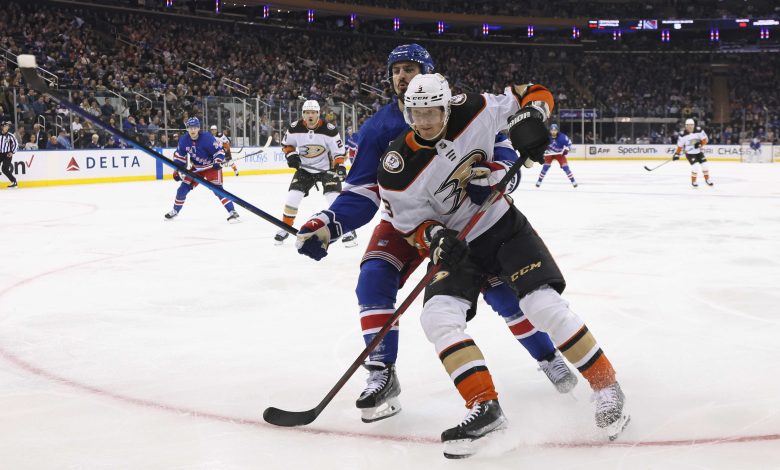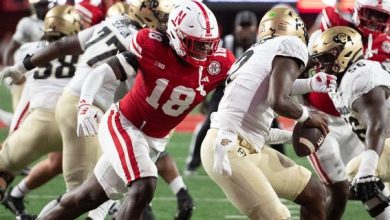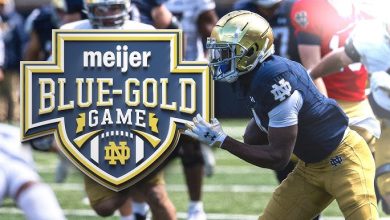The New York Rangers should avoid signing John Klingberg as he looks to make an NHL return.

As the 2025 NHL season continues to unfold, teams around the league are evaluating potential roster moves and seeking ways to improve their chances of success heading into the latter half of the campaign. For the New York Rangers, a team with championship aspirations and a stacked lineup, one name that has recently been circulating in trade and free agent rumors is John Klingberg, the talented defenseman who is reportedly looking for a return to the NHL after a brief period of uncertainty. While Klingberg’s skillset is undeniable, the Rangers should tread carefully and ultimately avoid signing him as they look to bolster their defense.
Klingberg, a former standout defenseman for the Dallas Stars, has a wealth of experience in the league and has been one of the more reliable offensive-minded blue liners throughout his career. His ability to generate points, quarterback power plays, and contribute offensively from the back end is a highly sought-after asset. However, the Rangers must consider several key factors before making any move to bring Klingberg into their fold.
Here’s a closer look at why the New York Rangers should avoid signing John Klingberg and explore other potential options to solidify their defense.
1. Defensive Inconsistency and Fit
The most glaring issue with adding John Klingberg to the Rangers’ lineup is his defensive inconsistency. While he is undoubtedly an excellent offensive defenseman with strong puck-moving abilities and impressive vision, his play in his own end has been a point of concern throughout his career.
Over the past few seasons, Klingberg has been criticized for his tendency to struggle defensively, particularly when it comes to his positioning, gap control, and ability to handle high-pressure situations. His deficiencies in his own zone often overshadow his offensive contributions, leaving many to question whether he is capable of being the type of all-around defenseman a contender like the Rangers truly needs.
The Rangers have a solid defensive core already, featuring players like Adam Fox, Jacob Trouba, and Ryan Lindgren, who excel in their own zone and provide stability. Adding Klingberg, who is often caught out of position or struggles to clear the puck from dangerous areas, could potentially disrupt the team’s defensive structure. The Rangers have relied on defensive-minded players to complement their high-powered offense, and introducing a player with Klingberg’s defensive issues could upset the balance that they have carefully cultivated.
Instead, the Rangers should prioritize adding a defenseman who can not only contribute offensively but also provide the necessary defensive reliability to thrive in the high-pressure environment of the Metropolitan Division and the Stanley Cup playoffs. While Klingberg can certainly fill a niche on the power play, he would be a risky addition to a team that already has some defensive concerns.
2. The Rangers’ Salary Cap Situation
Another major factor that should influence the Rangers’ decision-making process is their salary cap situation. With players like Artemi Panarin, Mika Zibanejad, and Igor Shesterkin commanding significant salaries, the Rangers have little room to make high-profile acquisitions without making difficult financial decisions.
Klingberg, although not a superstar, is still expected to command a relatively high salary based on his previous contract and the demand for offensive-minded defensemen around the league. Reports indicate that Klingberg is seeking a long-term deal at a salary that could exceed $4 million per season, a figure that the Rangers may not be able to afford without sacrificing depth or key contributors on their roster.
Given their current cap situation, the Rangers would be better off looking for more affordable options that would offer better value for the team’s needs. The trade deadline will likely present opportunities to acquire a defenseman who can improve the team’s blue line without the significant financial commitment that Klingberg may demand. Whether through a low-cost trade or a more affordable free agent option, the Rangers should avoid overcommitting to Klingberg and instead focus on bolstering their defense with a more cost-effective solution.
3. Rangers Already Have Strong Offensive Defensemen
One of the Rangers’ strengths has been their ability to produce offense from the back end, with players like Adam Fox, K’Andre Miller, and Jacob Trouba all providing strong contributions to the attack. Fox, in particular, has been a force on both ends of the ice, earning Norris Trophy consideration for his all-around play. Adding another offensive defenseman like Klingberg may be redundant and could take away from the team’s existing strengths.
While it’s true that Klingberg can add value on the power play, the Rangers already have Fox, who is one of the league’s best at running a power play and creating scoring chances from the point. There’s no question that Klingberg’s offensive game would be a solid addition, but the Rangers’ need for a well-rounded defenseman outweighs the desire for additional offensive production from the blue line.
Rather than looking for another player who can add to the offensive side of things, the Rangers should focus on improving their defensive depth. Acquiring a stay-at-home defenseman or a player who can help with puck retrieval and breaking up opposing plays could be much more beneficial to the team’s overall balance, especially as the team looks to make a deep playoff run.
4. Lack of Playoff Success and Defensive Responsiveness
One of the biggest concerns about signing John Klingberg is his lack of playoff success in recent years. While Klingberg has had a solid career with the Dallas Stars, his performances in the postseason have been inconsistent. His defensive flaws tend to be magnified in high-stakes playoff games, and his inability to handle physical pressure and strong forechecking teams has often been exposed.
The Rangers, as a team with legitimate Stanley Cup aspirations, need players who are battle-tested and can thrive in the playoffs. Adding a player like Klingberg, who has not proven himself in high-pressure postseason moments, could potentially hinder the Rangers’ chances of success in the most important games of the season.
Klingberg has had a few strong playoff runs with the Stars, but those instances have been the exception rather than the rule. The Rangers need to prioritize adding players with the type of defensive prowess that will allow them to shut down top offensive lines in the postseason, not just during the regular season. A reliable shutdown defender is far more valuable to the Rangers’ playoff hopes than an offensive defenseman who may struggle when it matters most.
5. Potential Alternatives
Rather than pursuing Klingberg, the Rangers have several more appealing options in both the trade market and the free-agent pool. At the 2025 NHL Trade Deadline, there will be several defensemen on the market who are capable of strengthening the Rangers’ blue line without the defensive concerns that accompany Klingberg.
A potential trade target could be Jakob Chychrun of the Arizona Coyotes, who is a skilled, two-way defenseman known for his ability to play both ends of the ice. His physical play and ability to contribute offensively would fit well into the Rangers’ system. Additionally, Torey Krug of the St. Louis Blues has been rumored to be available and could offer a similar offensive punch without the glaring defensive holes that Klingberg has shown in recent years.
In free agency, the Rangers could look at players like Matt Dumba, a veteran defenseman with a strong physical presence and the ability to move the puck up the ice. Dumba would bring a more balanced approach to the blue line, something the Rangers desperately need as they look to make a deep run in the playoffs.









